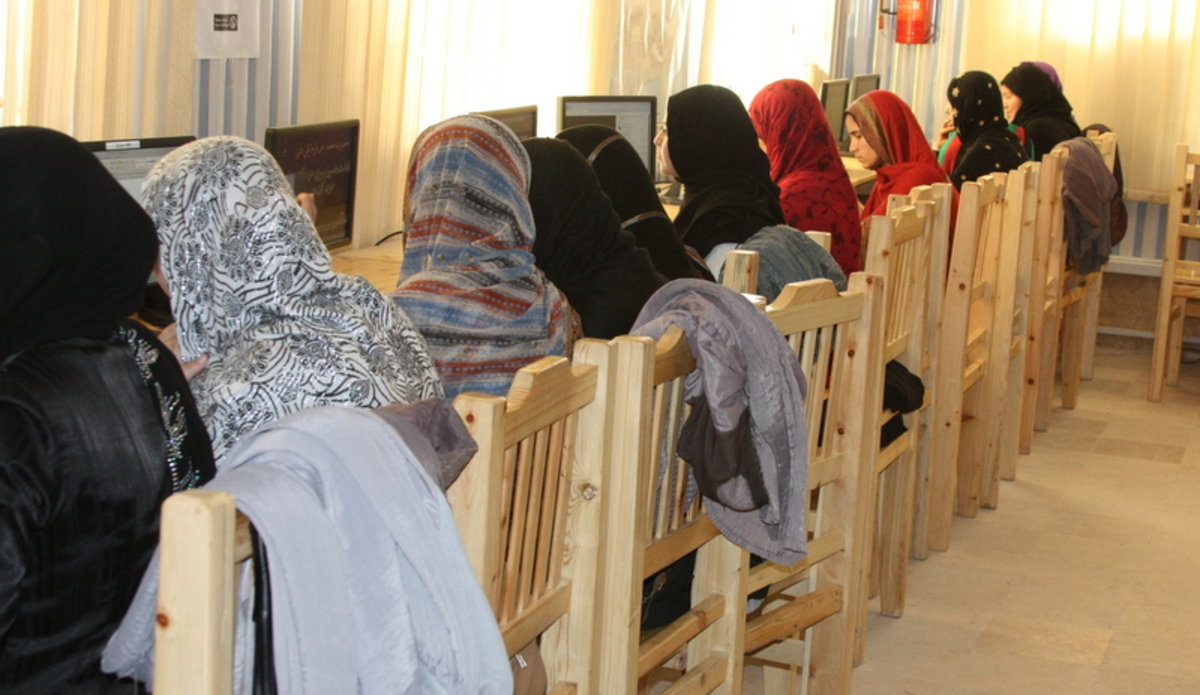Invest in women’s education to address poverty and inequality
HELMAND – Providing women with access to education is the most sustainable means of addressing gender inequality and improving the lives of women, stressed participants in a series of UN-backed radio discussions in the southern provinces of Helmand, Nimroz and Zabul.
Radio roundtable panellists in Helmand, including women rights activists, tribal leaders and civil society representatives, said that education should be a priority and long term strategy for empowering women and breaking the cycle of poverty, illiteracy, economic dependence and gender-based violence.
“When women are educated, it transforms them, their families and communities,” said Wajiha Rasouli, head of the department of women affairs in Helmand. She said her office is working to bring a visible change in the lives of women in the province by creating economic opportunities. “Currently, we are working to establish a women-only trading place where women can open small businesses to be self-reliant and able to support their families.”
During a similar radio roundtable in Zabul province, a religious scholar Maulwai Mohammad Yaqoub, emphasized the need and importance of education both for women and men to address violence against women. “The best way to deal with the problem of gender violence is to educate people,” stated Yaqoub. “People mostly rely on false traditional practices which are not Islamic or constitutional,” he said, adding that forced, and child marriages continue to happen because people are ignorant of the laws.
Afghanistan has come some way in improving the lives of women through access to education and legislation such as the EVAW law and the National Action Plan. The past 17 years have seen millions of girls go through school. Nonetheless, there are still millions of girls who cannot access or continue their education due to many social and structural barriers including inequality, child marriages and traditional practices. Poverty remains one of the most significant barriers to accessing education, especially for rural women and girls across Afghanistan.
Panelists recommended investing in girls and women’s education to overcome poverty and improve the lives not just of women and their families, but the entire nation.
The UN is committed to supporting the Afghan Government’s efforts and is working with a variety of institutions and actors to promote gender equality and non-discrimination, as well as supporting local programmes aimed at expanding opportunities for women, including access to education.
UNAMA’s regional office in Kandahar in partnership with media partners across the three provinces, including Borna Radio in Nimroz, Shaikh Mati Radio in Zabul and Bost Radio in Helmand province produced the programmes. They are part of a countrywide outreach campaign aimed at creating platforms using radio, television, and social media for local communities to engage in dialogue and discuss critical issues affecting women. An estimated audience of 1million were reached including through social media platforms.
 UN
UN







